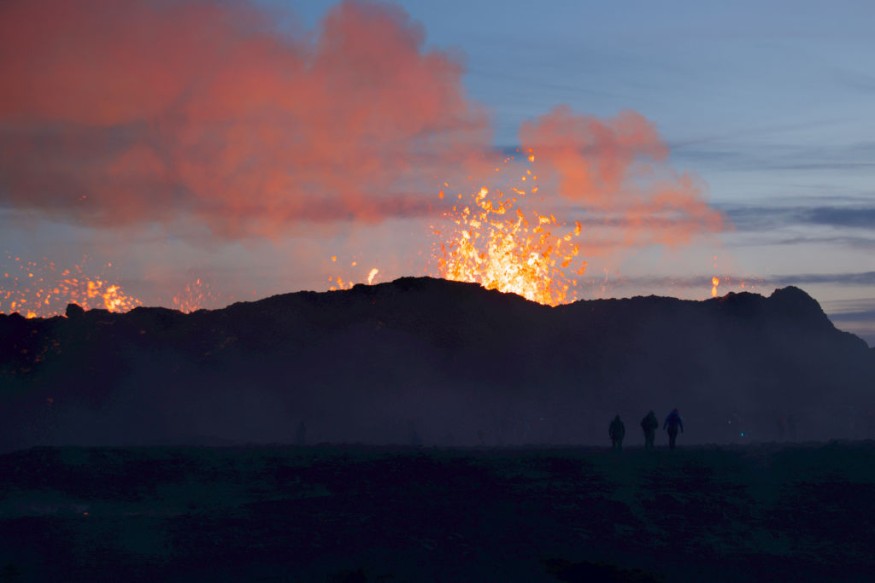Experts have warned that a volcanic explosion may devastate the Icelandic town of Grindavik or cause massive ash clouds.
Probable Eruption in Iceland

Iceland remains on high alert as meteorologists predict a volcanic explosion in the coming days.
Since November 10, Grindavik, a small fishing village in the country's southwest, has been the epicenter of persistent seismic activity.
More than 800 minor earthquakes have shaken Iceland, raising fears that the tremors would damage the Fagradalsfjall volcano on the Reykjanes peninsula in the country's southwest.
https://en.vedur.is/about-imo/news/a-seismic-swarm-started-north-of-grindavik-last-night
The Fagradalsfjall volcano, which had been dormant for 6300 years, erupted in 2021, ushering in a new era of volcanic activity.
Clive Oppenheimer, a volcanologist at Cambridge University, said that the eruption's rise could have signaled the start of "a new eruptive phase" that could span centuries.
Roads have begun to crack and buildings have buckled due to the pressure of subsurface magma.
"There is an underground magma-filled crack beneath this part of town, and if the magma reaches the surface and erupts, then it would destroy and damage several houses and other buildings," said Dave McGarvie, a volcanologist researching volcano-ice interactions at Lancaster University in England.
Icelandic officials have begun the process of building defense barriers around the Svartsengi Geothermal Power Plant in order to safeguard it against lava flows. A Caterpillar D11, thought to be Iceland's largest bulldozer, has been dispatched to assist in the construction of defenses.
The power plant supplies power to the entire country.
As a precaution, several important routes connecting Grindavik to neighboring places have been temporarily closed.
As of Thursday, no flights have been impacted. Grindavik, on the other hand, is approximately 40 miles from Iceland's capital, Reykjavik, and less than 20 miles from the country's only international airport, Keflavik.
The renowned tourist destination Blue Lagoon geothermal spa has been temporarily closed.
Huge Evacuation Underway
Over the weekend, about 4,000 people were evacuated from Grindavik because of fears that molten rock may rise to the earth's surface and strike the coastal town and a geothermal power station.
"Everything just seems so unreal, I feel like I'm in a dystopian movie. I'm just waiting to wake up from this nightmare," said 46-year-old Andrea Ævarsdóttir, a resident of Grindavik.
According to Vir Reynisson, head of civil defense, more homeowners may be able to get into the danger zone to retrieve their belongings.
He added that a new risk assessment has been deliberated so that the residents could return to their houses.
The last time an entire large town was evacuated was 50 years ago, in 1973, when a volcano abruptly erupted on the island of Heimaey off Iceland's south coast.
For the last three years, the Reykjanes Peninsula has had a relatively minor eruption every year, with all three occurring far from residential areas.
The most recent Icelandic volcano to cause international havoc was Eyjafjallajökull, which erupted in 2010. A massive ash cloud that blasted 5 miles into the sky grounded flights across Europe, forcing the closure of its airspace.
Related Article : Iceland Volcano Erupts Near Capital After A Strong Earthquake Struck
© 2026 NatureWorldNews.com All rights reserved. Do not reproduce without permission.





